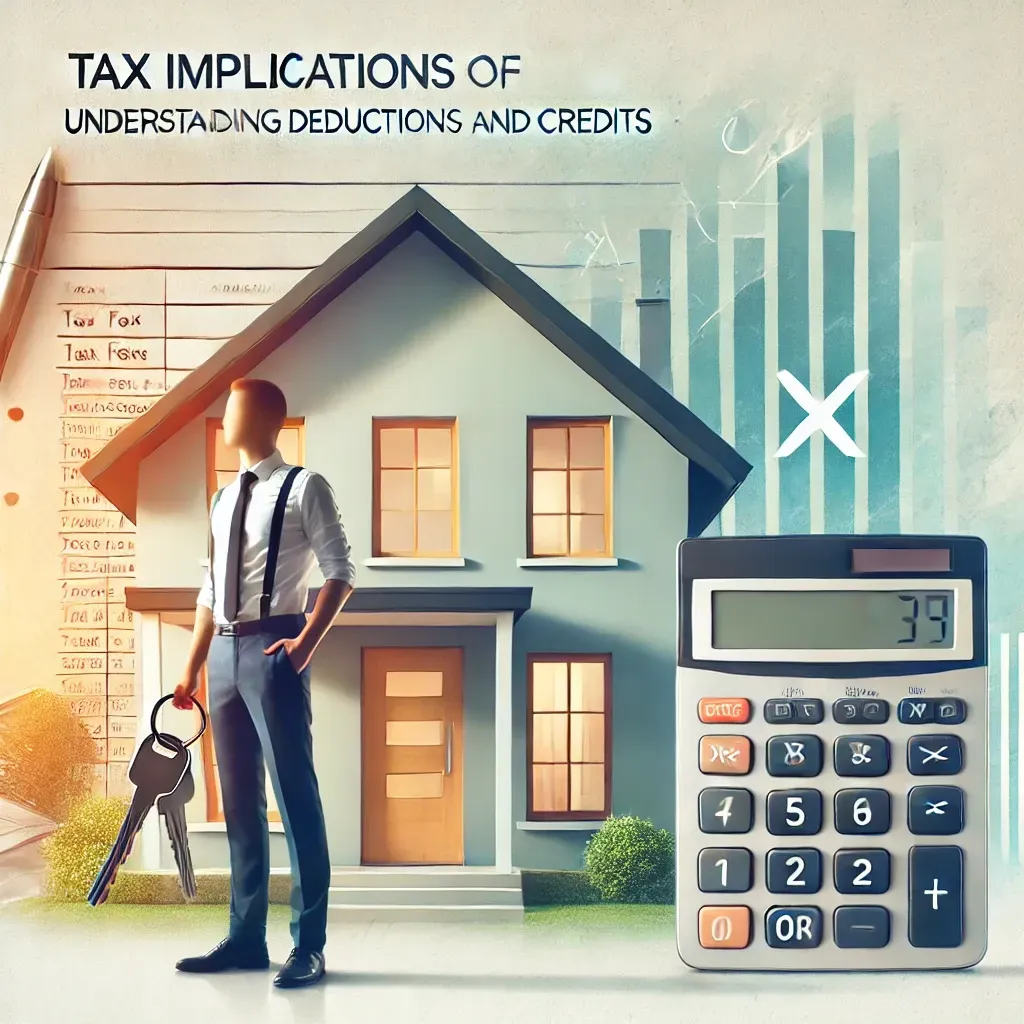
Tax Implications of Buying a Home: Understanding Deductions and Credits
Buying a home is a significant milestone that comes with many financial considerations, including potential tax benefits. Understanding these implications can help you make informed decisions and possibly reduce your tax bill. Here are the key tax implications of buying a home, along with some tips to maximize your benefits.
1. Mortgage Interest Deduction
One of the most substantial tax benefits of purchasing a home is the mortgage interest deduction. This deduction allows you to subtract the interest you pay on your mortgage from your taxable income. For mortgages taken out after December 16, 2017, the deduction is limited to interest paid on up to $750,000 of mortgage debt. For mortgages taken out before this date, the limit is $1 million.
Tip: Keep detailed records of your mortgage interest payments to ensure you can claim the maximum deduction.
2. Property Tax Deduction
Property taxes paid on your home are also deductible from your taxable income. However, the total amount of state and local taxes you can deduct, including property taxes, is capped at $10,000 per year.
Tip: Monitor your property tax payments and other state and local taxes to optimize your deductions within the cap.
3. Home Office Deduction
If you work from home, you may be eligible for a home office deduction. This allows you to deduct a portion of your home expenses, such as mortgage interest, property taxes, utilities, and repairs, that are directly related to your home office. To qualify, the home office must be used exclusively and regularly for business purposes.
Tip: Keep a dedicated space for your home office and maintain records of expenses to maximize this deduction.
4. Energy Tax Credits
Several tax credits are available for energy-efficient improvements made to your home. These credits can help offset the cost of upgrades like solar panels, energy-efficient windows, and insulation. Notable credits include the Residential Energy Efficient Property Credit and the Nonbusiness Energy Property Credit.
Tip: Research available energy tax credits before making home improvements and keep receipts and documentation of all related expenses.
5. Capital Gains Exclusion
When you sell your home, you may be able to exclude up to $250,000 of the capital gains from your taxable income if you are single, or up to $500,000 if you are married and filing jointly. To qualify for this exclusion, you must have owned and used the home as your primary residence for at least two of the five years preceding the sale.
Tip: Plan your home sale carefully to meet the residency requirements and take full advantage of the capital gains exclusion.
Important Considerations
Tax laws are complex and subject to change, so it's essential to stay informed and consult with a tax professional. A tax advisor can help you understand the current laws, navigate any changes, and ensure you’re taking advantage of all available deductions and credits.

